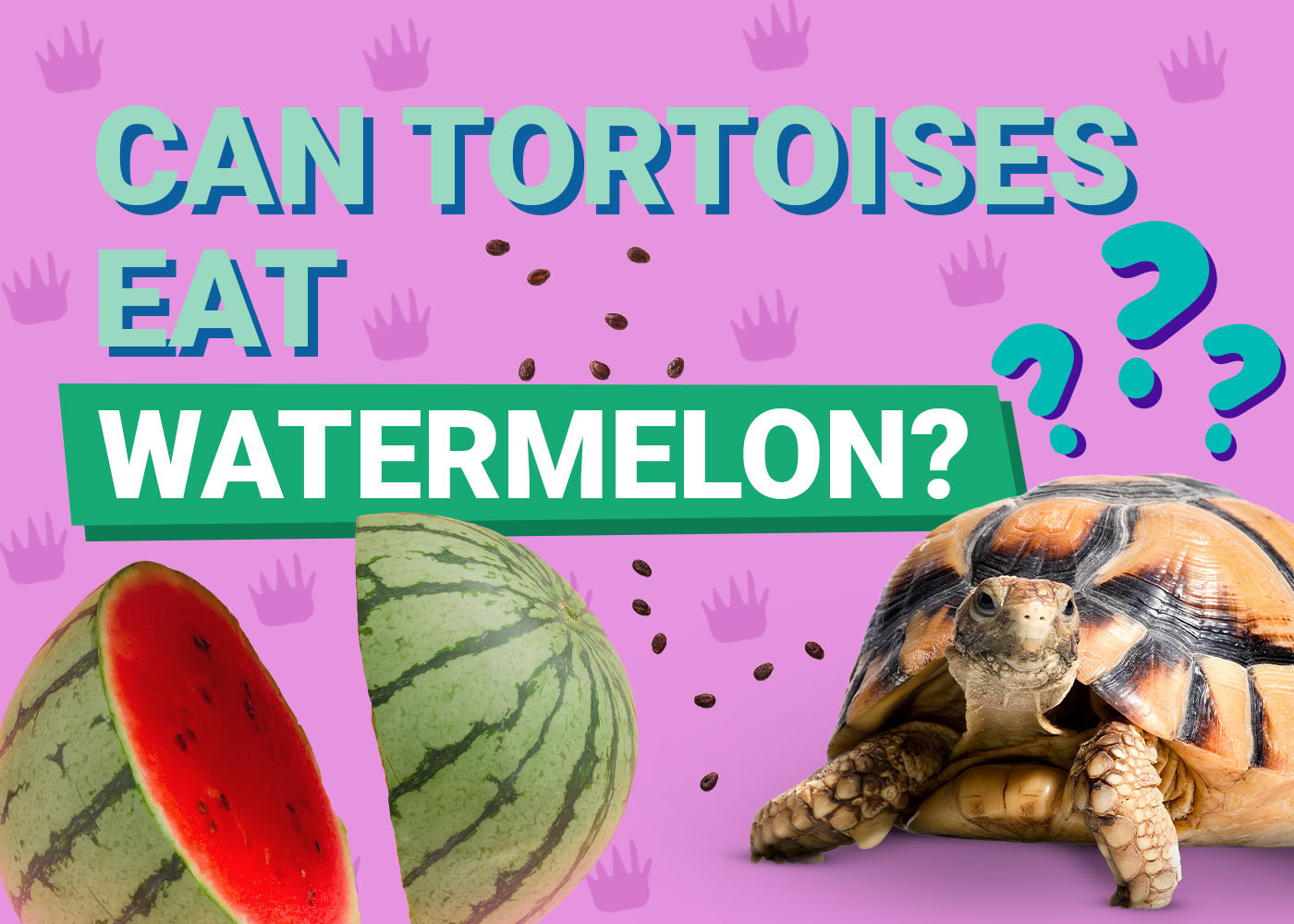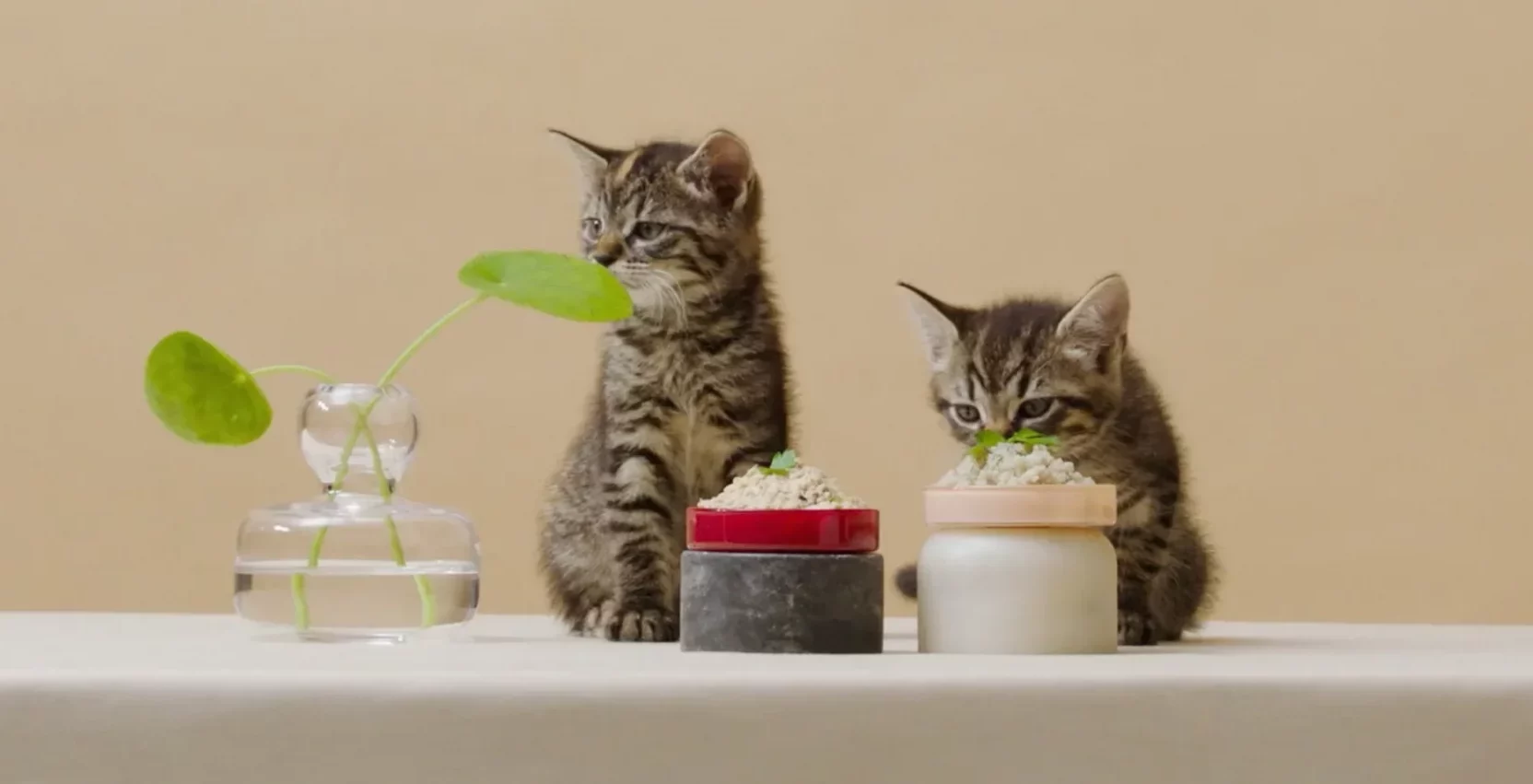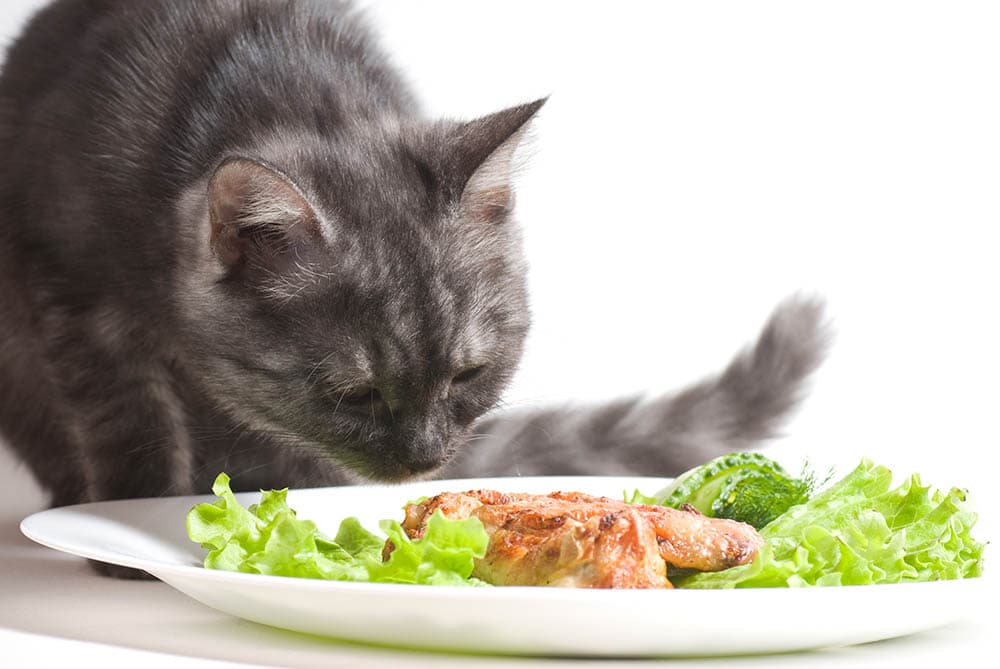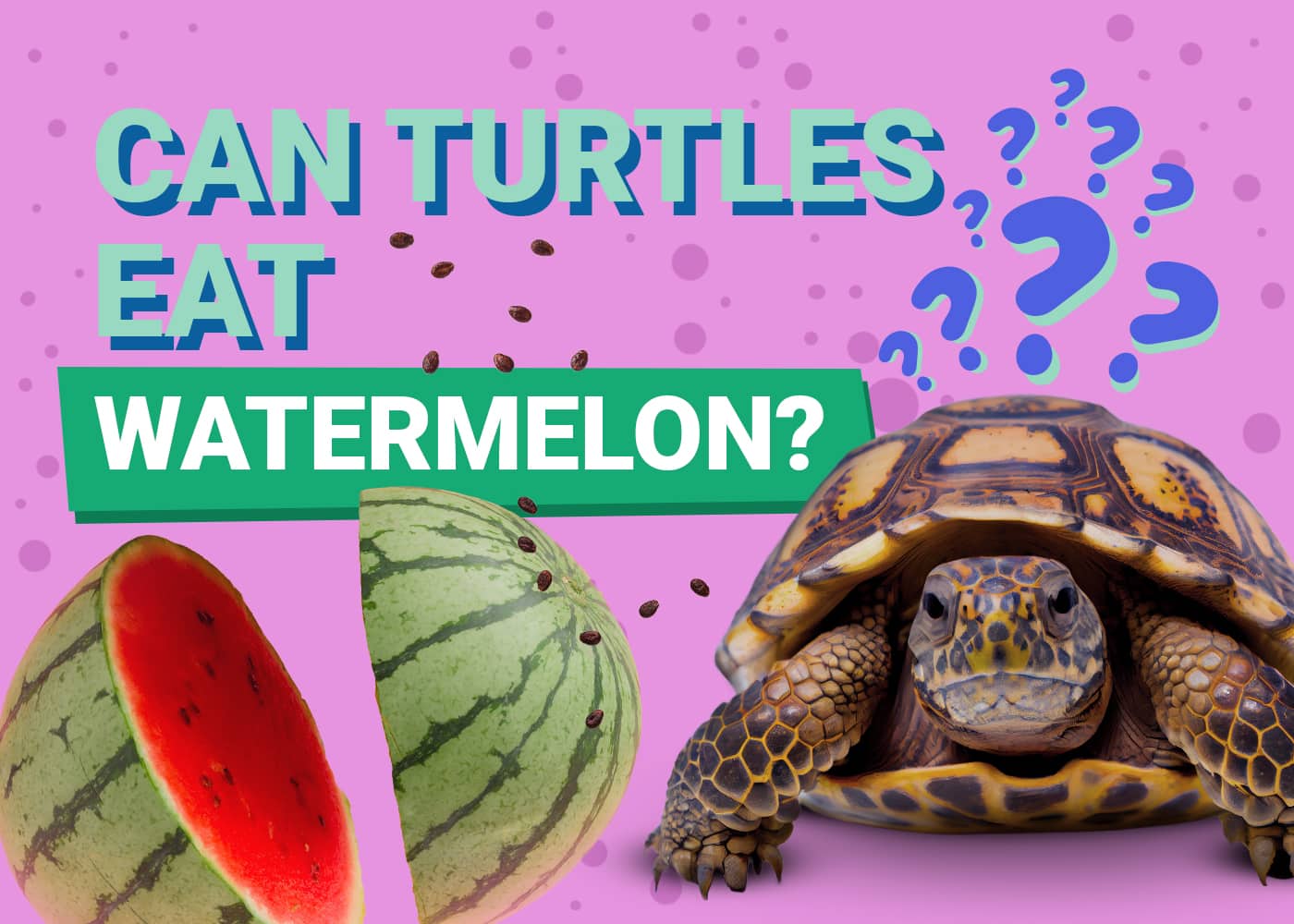VET APPROVED

The information is current and up-to-date in accordance with the latest veterinarian research.
Learn more »Click to Skip Ahead
There are many different breeds of tortoises. Some strictly require plants and flowers, while others can enjoy a little fruit in their diet. That said, you may be wondering if your pet tortoise can eat watermelon.
Watermelon is a sweet and refreshing fruit that many people love, but is it safe for your tortoise? The short answer is yes; most tortoises can eat a small amount of watermelon, though it ultimately depends on the species.
Did you know there are around 49 different species of tortoises? Most are herbivores, meaning they eat mostly plants and flowers. Since there are so many different species, here, we focus on three that can eat fruit.
Watermelon and Turtles vs. Tortoises
It’s important to understand the difference between turtles and tortoises. All tortoises are turtles, but not all turtles are tortoises! Tortoises exclusively live on land and have elephant-like feet, while many other turtle species are equipped with webbed feet for swimming and can live in water. So, if you own a box turtle, you do not own a tortoise.
Yellow-Footed Tortoise
The yellow-footed tortoise hails from the rainforests of South America. The vibrant yellow colors on the face, shell, and legs help distinguish this species from others. With proper care, they can grow up to 20 pounds. Most tortoises are herbivores, but this species is omnivorous and can consume animal and plant material in the wild. Yellow-footed tortoises can also enjoy fruit, including watermelon, as part of a mixed and balanced diet.
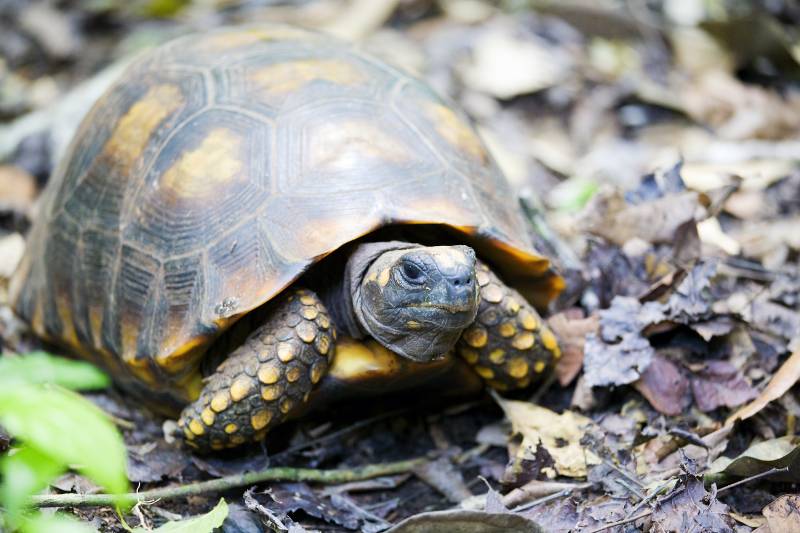
Red-Footed Tortoise
The red-footed tortoise also comes from South America and is a popular pet in the U.S. The colors on their legs can be orange, yellow, or red. These tortoises have curious personalities and a long lifespan of around 50 years or more. They can grow up to 11 to 14 inches long and weigh up to about 30 pounds. Red-footed tortoises are omnivores like the yellow-footed tortoise and can eat fruit. Watermelon can be a welcome occasional treat for them.
Elongated Tortoise
This tortoise, also known as the yellow-headed tortoise, gets their name from their distinctively long and narrow carapace, which can reach up to 12 inches in length. They can live 40 to 50 years and typically weigh up to 7 pounds. Elongated tortoises are forest dwellers in the wild and are omnivorous. They are happiest in warm, tropical weather and love to relax while buried under leaves. They enjoy a diverse diet that can include a small amount of fruit, such as watermelon.
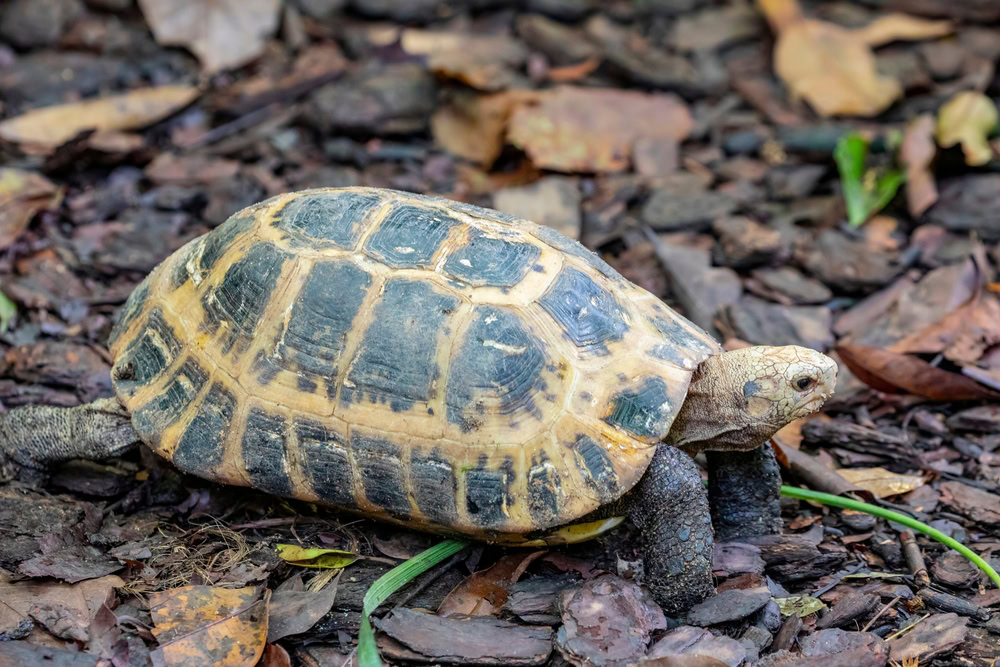
The Benefits of Feeding Watermelon to Tortoises
Watermelon is around 92% water, making it a tasty and hydrating treat. It also contains nutrients like vitamins A and C. Tortoises generally love the sweetness of fruit, but their digestive system is not designed to digest it. The high sugar content is also an issue.
How to Feed Watermelon to Your Tortoise
While most fruit-eating tortoises can eat watermelon on occasion, there may be a particular tortoise that doesn’t digest the fruit well. So, the first time that you introduce watermelon to your tortoise, you should offer them a small piece and monitor them afterward for adverse effects, such as diarrhea.
A 1-inch cube of watermelon is suitable for most tortoises. This fruit quickly becomes slushy and spoils, so many people like to offer their tortoise a few bites while they hold the slice of watermelon, rather than leave a piece with them in their enclosure.
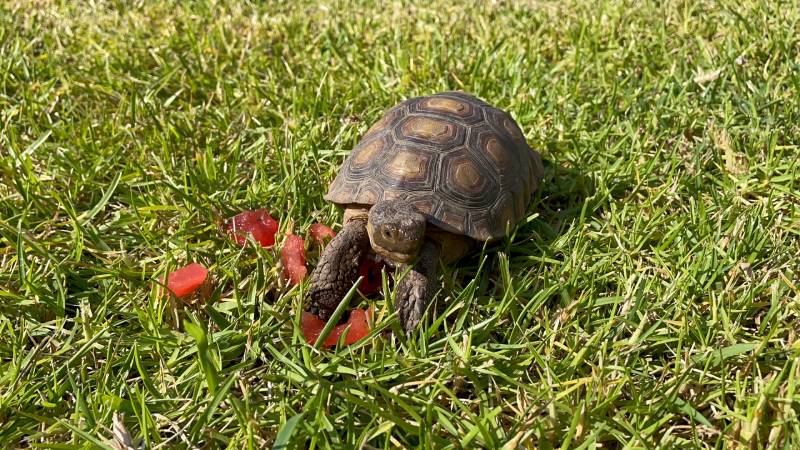
How Often Can I Feed My Tortoise Watermelon?
Different species of tortoises will have different nutritional needs, but as a rule of thumb, fruit should comprise no more than 10% of most tortoises’ diets. Red- and yellow-footed tortoises can typically have this amount increased to about 20%. That said, it’s always best to seek advice from your veterinarian when formulating the right diet plan for your specific pet.
While watermelon is safe for a fruit-eating tortoise, there are limits to how often you should feed it to them. Usually, a couple of times a month is plenty. Watermelon is also high in sugar, so keeping it to small pieces on occasion is most beneficial for your pet. A balanced, varied diet of safe vegetables and fruits is crucial for making sure your tortoise gets all the nutrients that they need to stay healthy.
Are Fruits Bad for Tortoises?
All fruits have a high sugar content, which can cause digestive issues and diarrhea. While most tortoises enjoy the sweetness, you don’t want them to fill up on fruit and reject their healthy greens. The occasional piece of watermelon is safe for most tortoises, but it’s best fed as a treat in rotation with other fruit. Strawberries, mangoes, peaches, apples, blackberries, raspberries, and grapes are also safe fruits that can be offered in moderation.
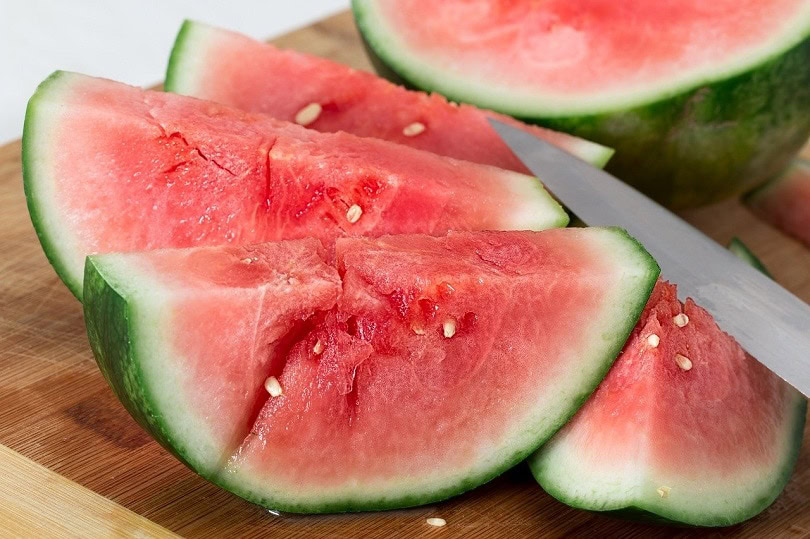
Can I Feed Watermelon to Mediterranean Tortoises?
The short answer here is: only very sparingly or not at all. The Mediterranean tortoise’s digestive system is not designed for foods that contain high sugars, such as watermelon, so it’s best to avoid them. This tortoise, like the Hermann’s tortoise, eats primarily plants and flowers. Feeding watermelon or any other fruit to them can lead to digestive issues.
The Bottom Line About Watermelon and Tortoises
There are many different species of tortoises, so it’s imperative to know what species you have so you can give them watermelon safely. This fruit contains various nutrients and is hydrating, but it isn’t without its risks, so it’s important not to overfeed it to your tortoise. As long as your pet can eat fruit, you can go ahead and give them a small amount of this sweet and delicious fruit as a special treat!
Related Topics:
- https://www.watermelon.org/the-slice/nutrition-facts-and-health-benefits-of-watermelon/
- https://www.britannica.com/animal/tortoise
- https://marinesanctuary.org/blog/whats-the-difference-turtles-vs-tortoises/?gclid=CjwKCAjwmqKJBhAWEiwAMvGt6F3Q5Ly2DWqJ0Z-CnrlixiTgBu8MhPWX76T4ET_pBw_N5_nK6PZ9iRoC6U0QAvD_BwE
Featured Image Credit: Fotografie – Schmidt, Shutterstock
